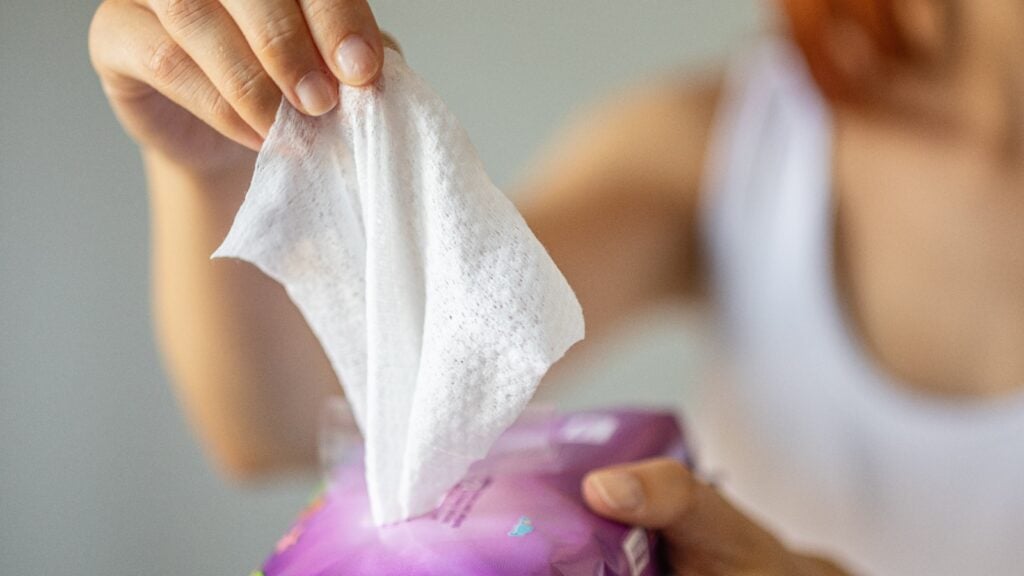Boots is taking a stand against plastic pollution. The health and beauty chain – and largest pharmacy chain in the UK – has pledged to end the sale of wet wipes containing plastic by the end of this year.
While undeniably one of the world’s most useful inventions, wet wipes are an environmental nightmare.
Roughly 90 percent of the 11 billion wet wipes used in the UK every year contain plastic. And when they’re flushed down the toilet, they cause sewage blockages, build up on river banks, and harm wildlife.
They are a major contributor to microplastics in waterways, and these tiny fragments are toxic to fish and marine mammals. Research has linked microplastic digestion with a number of ailments in animals, including oxidative damage, delayed growth, and reduced fertility.
They pose a significant risk to us too. While research is still ongoing, a study last year found that microplastics cause damage to human cells.
Boots, which is one of the biggest wipe-sellers in the UK, won’t stop selling wet wipes altogether. It’s important to note that many mothers and people with disabilities rely on them as a useful resource for maintaining hygiene. Instead, the chain will replace all plastic wet wipes with plant-based alternatives.
Phasing out wet wipes everywhere
Boots is not alone. Tesco and Holland & Barrett have also banned plastic-based wet wipes. And action is being taken at a governmental level too.
Introduced last year by Labour MP Fleur Anderson, the Plastics (Wet Wipes) bill seeks to prohibit the manufacture and sale of all wet wipes containing plastics across the UK. The bill has started its journey in the House of Commons and will undergo its second reading next month.
During the first reading, Anderson said: “As a mother of four children, I completely understand the pressures that parents are under and the difficulties that can bring when trying to cut down on plastic and make the right choices for the environment.”
“I know that parents want to do the right thing and all I am saying is that we can make it easier on them and on everyone who relies on the use of wet wipes every day.”






